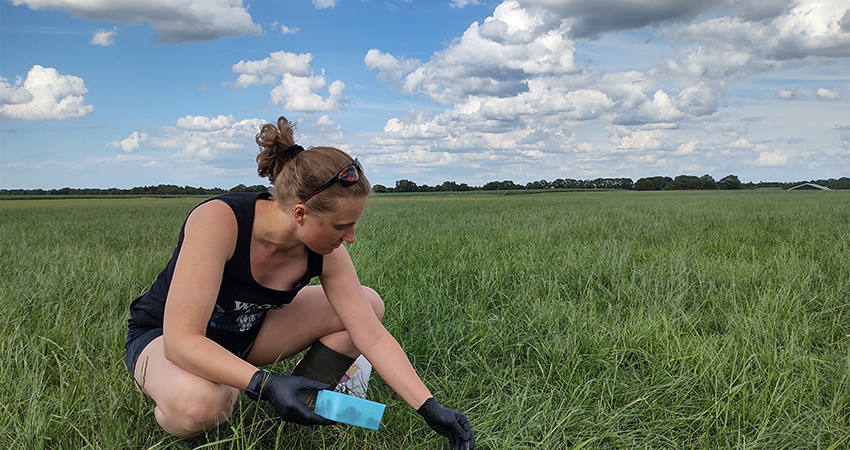Hetty: “We need to go outside comfort zones and move boundaries”

-
 Editorial Team
Editorial Team
Share article:
Hetty KleinJan from the Netherlands is working as a bio-engineer/microbiologist in the R&D department of CEBEDEAU, an independent Research and Expertise Center for Water in Belgium. She is participating in the fourth group of the European Junior Water Programme (EJWP), and is sharing her experiences with Water News Europe.
What is your current work position?
“I’ve been working since 2019 as a bio-engineer/microbiologist for CEBEDEAU, an independent Research and Expertise Center for Water. My tasks involve laboratory work with microbiological assays, data-analysis and interpretation, and lab/project management. I engage in diverse research projects, often in collaboration with industrial partners or technical consultants, aimed at harnessing information from microbial parameters to improve water management.“
What are the benefits and/or challenges of a European water-sector network?
“I see challenges of finding the balance between solutions that are realistic and implementable around different parts of Europe, while also being sustainable. To get there, many times we need to go outside comfort zones, move boundaries, and collaborate widely – while keeping a critical eye on ourselves and planning for the long term.“
What value do you expect to bring to your organisation, community or the water sector from your EJWP participation?
“I want to bring back knowledge relevant to the water sector, coming from different angles including technical, social, cultural, and political aspects. I also want to transfer what I learn about the water problematics in other countries to work together in some real collaborative and constructive ways. Furthermore I want use the new connections and skills to initiate new projects in Wallonia, Benelux and EU-wide. I also aim to convey the positive vibes and the enthusiasm that I experienced during our first training EJWP week in Athens. This was really an energizing experience, which brought me all kinds of new ideas, positivity and aspirations for the future. I hope that I can convey a real and helpful energy from this within CEBEDEAU and my community.”
What value do you expect to bring to your career from your EJWP journey?
“In EJWP, I can learn about topics relevant to the water sector that go beyond my current know-how and expertise. I hope to widen my knowledge on European water policy in relation to regional differences. For example: What are the main obstacles and how do regional differences in policies or governance lead to water quality issues outside the region?”
“On top of that, I’m keen to improve my soft-skills, especially people management and communication within more complex teams. During the Athens workshops, it became quite clear how challenging it is to transfer a message to others and to correctly interpret the outcome if the conversations are led by preconceptions. I believe that both hard and soft skills are important to building a career in the water sector, and to working on meaningful field projects that are relevant for the end-user.”
What is your view on making water resources more resilient to increasing climate impacts in Europe, especially after seeing conditions this summer 2022?
“We can reduce the use of potable water for applications that do not at all need this high quality. Another step is to promote and set-up reuse systems in residential, industrial, and commercial areas. Create more buffer zones for water storage in flood areas is one way to work with nature instead of against it. While doing all this, we can catch larger proportions of rainwater for use, instead of evacuating it directly to the sewer.”
What motivates you to participate in EJWP?
“I am motivated mostly by the fact that EJWP helps me to connect with other organizations, professionals, and stakeholders outside my direct working area. It’s good to be in contact with other researchers – young and older – from various backgrounds: engineers, biologists and social scientists. I hope to learn from them, work together, and make even a small-but-positive contribution to solving current water management issues.“
What and where did you study?
“I obtained a master’s degree in biology at Wageningen University in the Netherlands in 2014, and I did my doctoral research at Sorbonne University in France, on the interplay between symbiotic bacteria and algae.”
Where and in which position would you like to be working in five years?
“I am trying to figure this out now! What I do know is that I want to keep working in the water sector on environmental surveillance, water quality, and the development of innovative monitoring technologies. I like working in projects that involve multiple partners and disciplines intertwined.”











